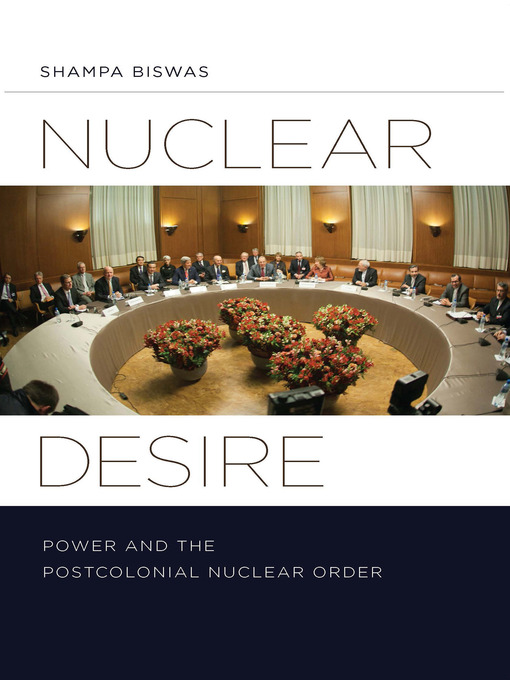Since its enactment in 1970, the Nuclear Non-Proliferation Treaty (NPT), has become one node of a massive, sprawling, multibillion-dollar regime that is considered essential to slowing the proliferation of nuclear weapons and weapons technology. However, according to Shampa Biswas, these well-intentioned efforts to halt the spread of nuclear weapons deflect attention from a hierarchical global nuclear order dominated by powerful states and capitalist interests that benefit from the status quo.
In Nuclear Desire, Biswas proposes that pursuit and production of nuclear power is sustained by this unequal global order whose persistent and daily harmful effects are experienced by some of the most vulnerable bodies around the world. Making a compelling case for nuclear abolition, she shows that the path to nuclear zero is more successfully traversed through the perspective of postcolonialism and the political economy of injustice?rather than through the prism of "security." In the end, the nonproliferation regime maintains a hierarchy of haves and have-nots, one that reinforces inequalities that run counter to the NPT's broader goal.
Innovative, forcefully argued, and long overdue, Nuclear Desire moves beyond conventional critiques to give scholars and students of international relations new insights into how a more secure world might simultaneously be more peaceful and just.

